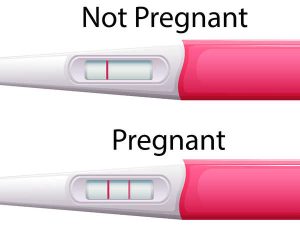Infertility is a common problem that affects many couples who are trying to conceive. According to the World Health Organization, infertility is defined as the inability to achieve a clinical pregnancy after 12 months or more of regular unprotected sexual intercourse. Infertility can be caused by factors affecting either the male or the female partner, or both. In this blog post, we will focus on the different causes of male infertility and what you need to know about them.
Male infertility can be classified into four main categories: pre-testicular, testicular, post-testicular, and idiopathic. Pre-testicular causes are related to factors that affect the production of sperm in the testes, such as hormonal imbalances, genetic disorders, infections, medications, environmental toxins, lifestyle factors, and nutritional deficiencies. Testicular causes are related to factors that affect the structure or function of the testes, such as congenital anomalies, trauma, varicocele, tumors, infections, radiation, chemotherapy, and aging. Post-testicular causes are related to factors that affect the transport or delivery of sperm from the testes to the female reproductive tract, such as obstruction of the epididymis, vas deferens or ejaculatory ducts, retrograde ejaculation, erectile dysfunction, and premature ejaculation. Idiopathic causes are those that cannot be explained by any of the above factors.
The diagnosis of male infertility usually involves a medical history, a physical examination, and a semen analysis. A semen analysis is a laboratory test that evaluates the quantity and quality of sperm in a semen sample. It measures parameters such as sperm count, motility, morphology, and vitality. A semen analysis can also detect the presence of infections or antibodies that may affect sperm function. Depending on the results of the semen analysis and the suspected cause of infertility, additional tests may be performed, such as hormonal assays, genetic tests, scrotal ultrasounds, testicular biopsy, or sperm function tests.
The treatment of male infertility depends on the underlying cause and the severity of the problem. Some causes of male infertility can be corrected by medical or surgical interventions, such as hormone replacement therapy, varicocele repair, vasectomy reversal, or sperm retrieval techniques. Some causes of male infertility can be improved by lifestyle changes, such as quitting smoking, reducing alcohol intake, avoiding exposure to heat or chemicals, maintaining a healthy weight and diet, and taking supplements that may enhance sperm quality. Some causes of male infertility cannot be treated directly but may be overcome by assisted reproductive technologies (ART), such as intrauterine insemination (IUI), in vitro fertilization (IVF), or intracytoplasmic sperm injection (ICSI).
Male infertility is a complex and multifactorial condition that can have a significant impact on the emotional and psychological well-being of couples who are trying to conceive. It is important to seek professional help and support from a qualified fertility specialist who can provide accurate diagnosis and appropriate treatment options. It is also important to communicate openly and honestly with your partner and seek counseling if needed. Remember that you are not alone and that there are many ways to achieve your dream of parenthood.





